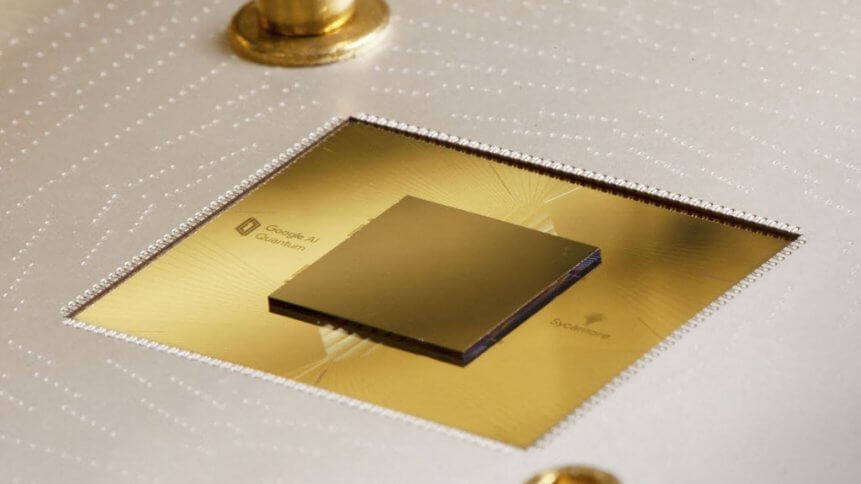


This undated handout image obtained October 23, 2019 courtesy of Google shows a Sycamore chip mounted in the printed circuit board during the packaging process. (Photo by HO / GOOGLE / AFP)
Google has just unveiled a new flagship Pixel smartphone powered by Google’s very-own first mobile chip that will put artificial intelligence in people’s hands.
Pixel 6 models are set for release later this year, and along with superfast 5G wireless capability, will also debut Google’s own Tensor chip — crafted along the lines of processors it made for data centers to enable computers to think more like people do.
“It’s basically a mobile system on a chip designed around artificial intelligence,” Google devices senior vice president Rick Osterloh said during a briefing at the company’s headquarters in Silicon Valley. “We’re really excited about it. We’re setting the stage to really grow the business.”
Google’s Pixel line has captured scant share in a global smartphone market dominated by Samsung, Apple and Chinese manufacturers. Pixel phones have been seen as a way for Google to showcase the capabilities of its free Android mobile operating system, setting a standard for other smartphone makers.
“We’ve always thought about our hardware products in the context of driving computing forward,” said Google chief executive Sundar Pichai. “Our custom Google Tensor chip, which has been four years in the making and builds off of two decades of Google’s computing experience, does exactly that.”
The Pixel 6 hardware and software mix ramps up the smartphone’s ability to understand what people say in another step toward a future of “ambient computing,” according to Osterloh. The phrase refers to being able to access the internet or computing power conversationally at any time as portrayed in the 2013 science fiction romance film “Her.”
“It’s basically this notion that you should be able to naturally interact with computers all around you,” Osterloh said. “We see the mobile phone being the center of that for the foreseeable future.”
The smarter chip was also put to work improving photo and video capabilities in a nod to hot trends in sharing images and short-form snippets online, a demonstration showed. An array of sensors for photography are in a band on the back of the smartphone, with the Pixel 6 having a 6.4 inch, edge-to-edge screen and the Pixel Pro model being slightly larger.
“The problem with Pixel has been that we keep running into limits with existing off-the-shelf technology solutions, and it’s just really hard to get our most advanced stuff from research teams onto the phone,” Google’s hardware boss Rick Osterloh told CNBC last week. “It’s going to really transform what we can do on the phone with machine learning and AI.”
Osterloh said the new chip will help Google’s phones take better photos and videos. “We’ve really made a custom computer built for computational photography,” he said.
Google’s shift to Tensor comes as the world faces a global chip shortage that has hobbled production of products ranging from cars to computers. Google made the decision to build its own chips after feeling that what the market had to offer was not up to par for their purposes, and follows a similar decision by rival Apple to ditch long-time processor partner Intel. Google similarly split with Qualcomm, but Qualcomm says the two will still work together on products powered by its Snapdragon platform.
The Pixel 6 release date and pricing were not disclosed, but the Google Tensor chip is expected to power new flagship models that will be launched around October. Google will reveal more details of the devices closer to the release, but what is clear is that the powerful features of the Pixel 6 appear to indicate that Google is once again looking to compete with Apple and Samsung as a maker of high-performance smartphones, in contrast with recent years where the Pixel series focused on affordability instead.
“In some ways, it’s fortunate in that we kind of control our own destiny,” Osterloh said of the chip crunch. “We think we can manage through it and see it getting better toward the end of the year.”
© Agence France-Presse
20 June 2024